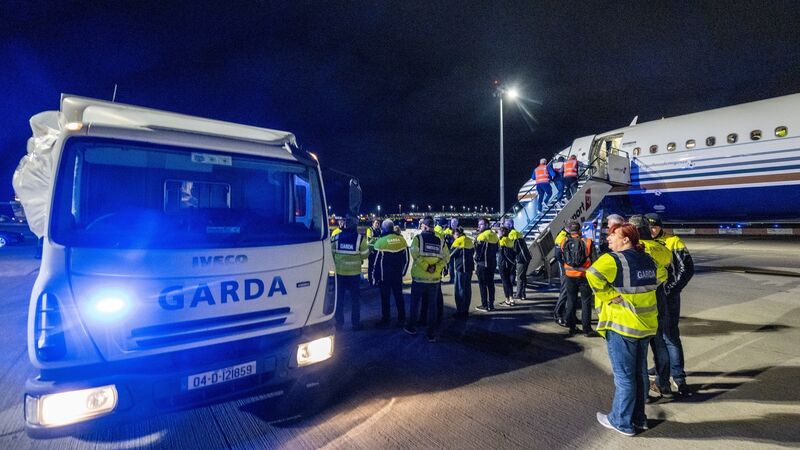Government accused of creating 'environment of fear' for asylum seekers

Deportees are escorted from Garda vehicles to a charter aircraft. Picture: Chani Anderson
Civil society organisations have hit out at the Government for creating an “environment of fear” for asylum seekers by publicising deportation operations.
In a joint statement, organisations Doras, Nasc, Irish Refugee Council, Immigrant Council of Ireland, Spirasi, and the Irish Council for Civil Liberties said they were extremely concerned about the negative impact and consequences of deportation operations being undertaken by the Department of Justice.













